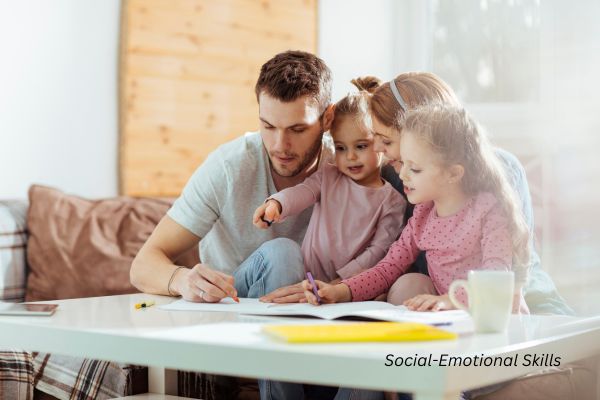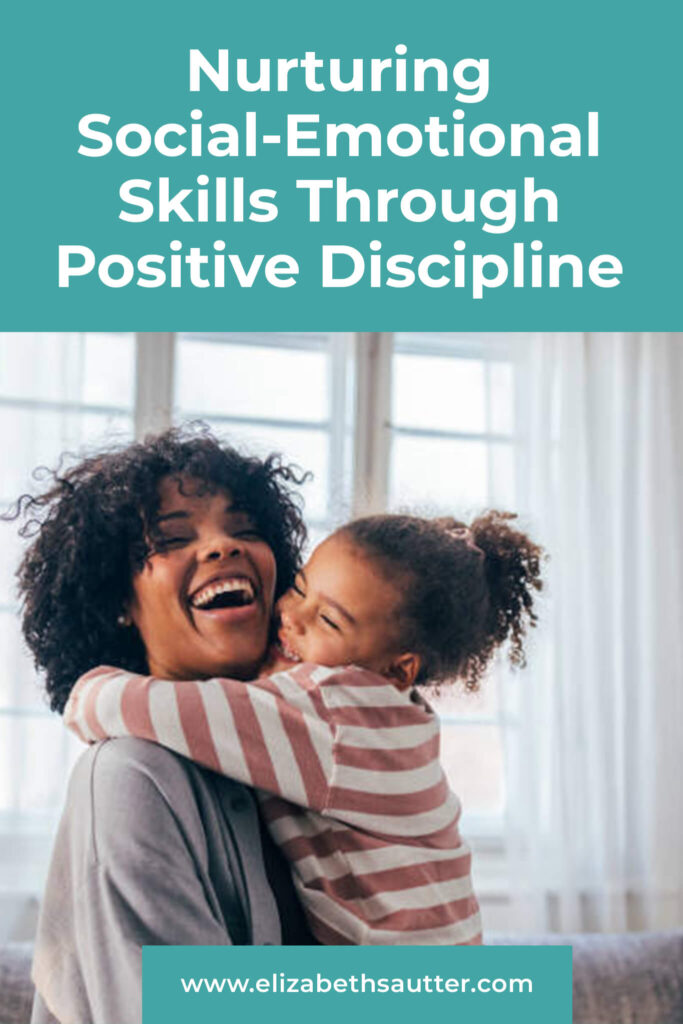Have you ever found yourself in a battle of wills with your child over something as simple as picking up toys? You’ve asked—maybe once, maybe ten times—and instead of compliance, you’re met with resistance. Your frustration builds, and, before you know it, your child is just as angry as you are. Sound familiar?
Moments like these highlight a deeper truth about parenting: emotions play a huge role in how we connect, communicate, and solve problems with our kids. And when we lean into understanding those emotions—ours and theirs—we unlock the key to building stronger relationships and teaching essential social emotional skills that will serve our children for life.
As a parent, I’ve learned that cultivating emotional awareness isn’t about being perfect or having all the answers. It’s about showing up, staying curious, and taking small steps every day to nurture emotional growth in our families. Let’s dive into what this means and how you can start fostering social emotional skills in your child today.
Understanding Social-Emotional Skills and Positive Discipline

Social-emotional development forms the foundation for how children navigate emotions, relationships, and challenges. Positive discipline focuses on teaching and connection rather than punishment, helping children build a sense of accountability, empathy, and self-awareness.
Unlike punitive approaches that rely on fear or shame, positive discipline nurtures a child’s confidence and emotional regulation skills, empowering them to grow and learn.
Why Do Children Test Boundaries?
Testing limits is a normal part of childhood development. Children are still learning how to manage emotions, communicate needs, and adapt to expectations. Rather than seeing this behavior as defiance, parents can reframe it as an opportunity to teach social-emotional skills. Every tantrum, outburst, or misstep can become a teachable moment.
The Negative Impact of Punishment

Positive Discipline: A Roadmap to Social-Emotional Development
Positive discipline is about teaching skills through connection, modeling, and guidance. By focusing on growth rather than control, you can support your child’s social-emotional development in ways that build long-lasting skills.
Here are five practical ways to use positive discipline:
Model Emotional Regulation
Children mirror what they see. When you manage your emotions calmly, even in stressful moments, you teach your child how to handle their own feelings.
Create Safe Spaces for Emotions
Establish a calming corner or use a sensory toolkit to help your child process emotions in a nonjudgmental space. This fosters emotional regulation and gives them the tools to self-soothe.
Communicate with Empathy
After a challenging moment, talk with your child about their feelings. Use phrases like, “It makes sense that you felt upset,” to validate their emotions while discussing better choices for next time.
Encourage Problem-Solving
Guide your child in brainstorming solutions to conflicts. This builds critical thinking, accountability, and confidence in their ability to handle future challenges.
Be Consistent
Consistency helps children internalize expectations and feel secure. Use predictable routines and clear communication to reinforce social-emotional skills daily.
Simple Tools to Support Social-Emotional Development
Parenting doesn’t have to feel overwhelming. Integrating social-emotional learning into your family’s routine can be as simple as: Using feelings charts to name emotions Practicing mindfulness activities during transitions Setting up family rituals, like a gratitude practice or weekly check-ins When children feel seen, understood, and supported, they develop the resilience and emotional regulation skills they need to navigate life’s challenges.
Breaking Free from Punishment Cycles
Many parents default to punishment because it’s how they were raised. However, breaking this cycle can transform your family dynamics. As experts like Dr. Mona Delahooke suggest, “Behavior is communication.” When we understand that a child is having a hard time, rather than giving us a hard time, it becomes easier to approach challenges with empathy and curiosity.
The Parent-Child Connection: Your Most Powerful Tool
Children look to adults for guidance. By modeling respect, empathy, and patience, you show them how to cultivate these traits themselves. In moments of stress, remind yourself that mistakes are part of learning—for both you and your child.
Positive discipline isn’t about perfection; it’s about progress. By focusing on teaching rather than punishing, you’re helping your child build the social-emotional skills they need to succeed—not just today but for the rest of their lives.


